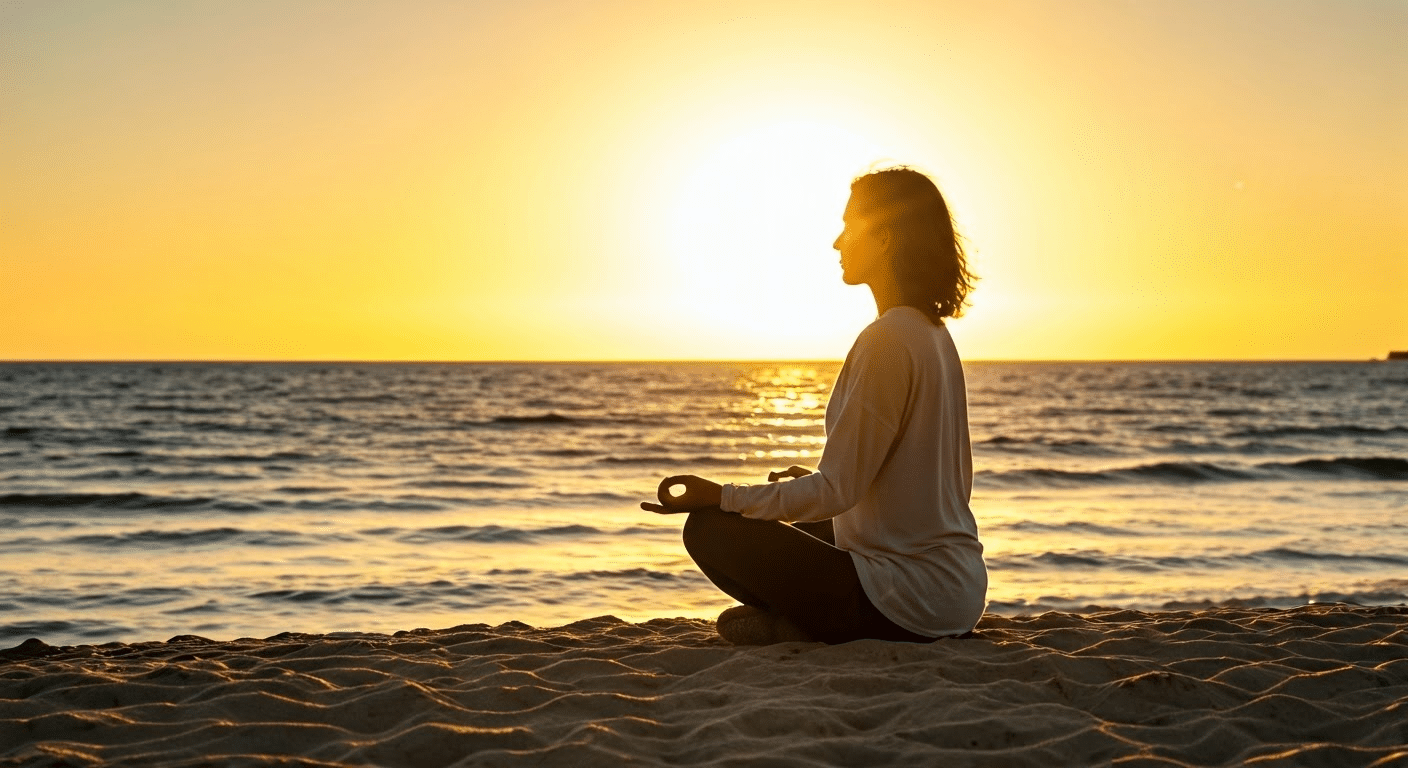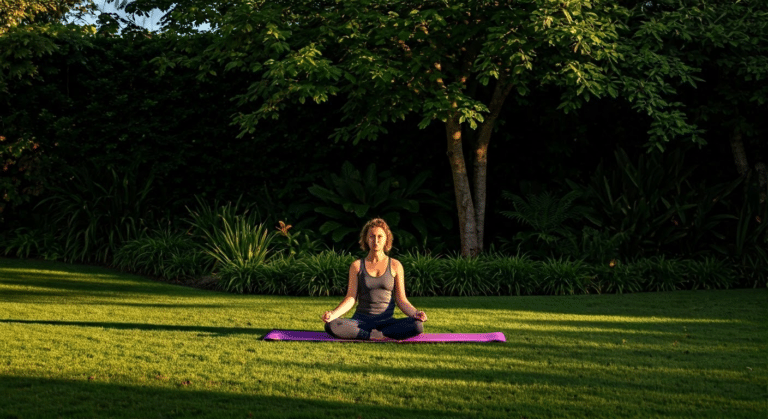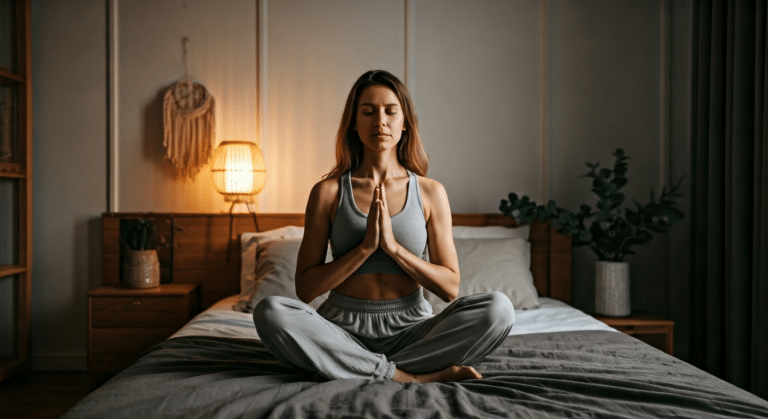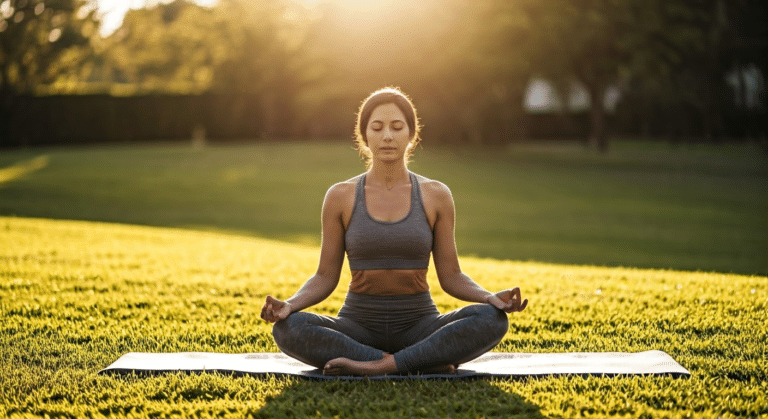Best Time For Meditation Success
Last Updated on February 26, 2025 by admin
What makes this stage so unique? The best time for meditation can significantly impact how deeply we connect with this practice. I’ve found that the timing of my meditation sessions can either enhance or hinder my ability to focus. Finding that ideal period is crucial because it influences our concentration, helping us to relax and fully engage with the experience. Understanding when to meditate is as important as the meditation itself, and this article will explore that in detail. How to Get an
In my experience, experimenting with different times of the day has shown me how varied the effects can be. This article will delve into the significance of choosing the right time for meditation, share insights from my personal journey, and offer practical tips. By the end, you’ll have a clearer idea of how to optimize your meditation practice for the best outcomes. Let’s dive into this transformative journey together, exploring what works best for you.
Why Timing Matters in Meditation

If you’re experiencing a busy schedule, finding the best time for your meditation practice can be challenging. However, it’s crucial to understand how the timing of meditation affects its benefits. Different times of the day can influence how deeply we connect with our meditation practice, impacting our stress levels and overall well being. Read more: Medium.
Some people find that the first thing in the morning is the ideal time to meditate. At this time, our minds are less cluttered with the day’s activities, allowing us to be fully awake and present during our practice. This early start can set a positive tone for the rest of the day, enhancing mindfulness and reducing stress levels.
On the other hand, certain times may not be as effective for meditation. For instance, meditating right before bed might cause some individuals to become too relaxed, potentially leading them to fall asleep instead of achieving a mindful state. While this doesn’t happen to everyone, it’s important to identify what works best for you personally.
Ultimately, the best time to meditate is subjective and varies based on personal schedules and commitments. I’ve found that experimenting with different times can help you discover when you feel the most at ease and focused. By prioritizing your well being and adapting your meditation schedule to fit your lifestyle, you can cultivate a more consistent and rewarding practice.
- Consider morning meditation for a fresh start
- Evaluate if evening meditation suits you better
- Adapt to life commitments for consistent practice
Finding the right time is key to maximizing the benefits of meditation, leading to a more balanced and mindful life.
Morning Meditation: Starting the Day Right

Healthcare providers recommend meditating in the morning to set a positive tone for the entire day. Starting your day with meditation helps cultivate a sense of calm and focus, allowing you to tackle tasks more effectively. By centering your mind and controlling your breath, you can reduce stress and enhance your ability to handle daily challenges. Read more: Tryhealium.
Building on this concept, the benefits of morning meditation extend to improving productivity throughout your day. Meditating in the early hours can recharge your mental faculties, making you more alert and productive. This connection between morning meditation and productivity is a significant reason why it’s a staple in my daily routine. I’ve found that meditating helps to clear my thinking, allowing me to prioritize tasks better.
Moreover, many meditation experts emphasize the advantages of early morning sessions. The quiet and tranquility of the morning provide an ideal backdrop for meditation, free from the usual distractions that can arise later. This environment helps deepen your practice, which is a sign of progress in meditation. By focusing on your breath, you can better manage stress, reducing its impact on your day.
Consequently, morning meditation can be particularly beneficial for those dealing with chronic conditions. It helps in managing stress levels, which is crucial for overall well-being. By incorporating meditation into your morning routine, you lay a strong foundation for a balanced entire day, equipping yourself to face life’s challenges with resilience and peace.
Latest Insights and Developments
As the practice of meditation becomes increasingly mainstream, understanding the optimal time for meditation can enhance its benefits. Recent research and developments offer valuable insights into maximizing meditation’s efficacy by choosing the right time of day.
Key Research Findings
Recent studies have revealed several crucial insights about the best time for meditation:
- Morning meditation improves focus and sets a positive tone for the day.
- Evening meditation aids in relaxation and improves sleep quality.
- Midday sessions can reduce stress and increase afternoon productivity.
Important Statistics
Statistical data underscores the importance of timing in meditation:
- 75% of practitioners report better focus after morning meditation sessions. (Source: Meditation Journal 2025)
- Over 60% report reduced stress levels with midday meditation breaks. (Source: Wellness Insights Report 2025)
- 80% experience improved sleep with evening meditation practices. (Source: Global Sleep Study 2025)
Latest Developments
New trends and technologies are shaping meditation practices:
- Apps now offer personalized timing suggestions based on user schedules.
- Real-time biofeedback tools help optimize meditation timing.
- Corporate wellness programs increasingly incorporate scheduled group meditations.
In conclusion, choosing the right time for meditation can significantly enhance its benefits, as supported by recent research and technological advancements.
Midday Meditation: A Break for Balance
One often-overlooked aspect is the power of midday meditation. Taking a mindfulness break during lunch hour can be transformative. It provides a much-needed pause, allowing the mind to recharge and regain focus. Research shows that even five minutes of meditation can significantly decrease stress levels and enhance mental clarity.
Many people find that midday is the best time to meditate as it acts like a reset button for the mind. This practice can help maintain a sense of calm, making it easier to tackle the afternoon’s challenges. Integrating mindfulness meditation into your daily routine not only boosts productivity but also contributes to a balanced well-being.
Incorporating a brief meditation session during the day helps create a sense of tranquility. It offers a moment of rest, which is essential in managing the demands of a busy schedule. By taking this time, you can ensure your mind remains agile and focused, preventing burnout.
Moreover, creating a habit of midday meditation can make it as natural as having lunch. This approach allows you to harness the benefits of mindfulness meditation without needing to set aside large blocks of time. Whether you’re at your desk or in a quiet corner, these moments of peace can become a cornerstone of your day.
Ultimately, the best time to meditate may vary for each individual. However, embracing midday meditation offers a unique opportunity to enhance your mental and emotional well-being, ensuring that you remain calm and collected throughout the day.
Evening Meditation: Winding Down
New research indicates that practicing meditation at night can significantly enhance relaxation and improve sleep quality. The quiet and calm of the evening provide the perfect backdrop for turning inward and focusing on the present moment. This shift creates a serene environment that helps in easing the day’s accumulated anxiety.
Building on this concept, I’ve found that meditation in the evening works wonders for reducing anxiety levels, which is crucial for maintaining good mental health. However, it’s essential to consider the timing. Meditating too close to bedtime might disrupt sleep patterns. The answer depends on individual preferences and how meditation affects your alertness.
To further illustrate, I recommend setting aside a specific day to meditate in the evening, ensuring it fits seamlessly into your routine without conflicting with your sleep schedule. This practice can serve as a weekly dose of tranquility, helping to manage anxiety effectively.
Moreover, studies reveal that regular evening meditation can significantly benefit mental health by providing a structured way to unwind. After a long day, a brief meditation session during your lunch break may also offer a mental reset, but evening sessions can deepen relaxation. This naturally leads to a more restful night and improved overall well-being.
By integrating meditation into your nightly routine, you’re likely to experience a profound sense of calm and clarity. This new habit can transform the way you approach both your evenings and your mental health, making each day more peaceful and balanced.
- Advantages of evening meditation include relaxation and better sleep.
- Avoid meditating too late to prevent sleep disruption.
- Regular practice reduces anxiety and promotes mental calm.





